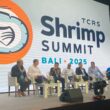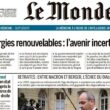Immediate Media, the UK’s second most profitable magazines group, has surprised even its own people by selling its highly-profitable wedding digital portfolio to The Knot Worldwide, of the US. The major brand, Hitched. co.uk, has multiplied its profits five times in the five years of Immediate’s ownership to an estimated £4.5m in 2019. It is believed to have been sold for some £40m, almost five times what Immediate paid for the business in 2015.
Like private equity
The figures tell the story of Immediate’s parent company Burda which has sometimes seemed to operate almost as a private equity group both within its operating companies and across its expanding range of media and tech investments.
The irony is that the 24-year-old The Knot had been the model for Immediate’s exploitation of the UK wedding market. But, in justifying the divestment, the company emphasised that – for all its success – Hitched was much less able than the rest of its brands to share content and resources across the Immediate portfolio. It was more a marketplace than a content business.
With the sale, Immediate has become only the latest in a long line of magazine-centric companies to realise that the booming wedding planning market has its limitations for media. First, it is built round the 12-18 month immersion of reader-users who then vanish. Second, many of the services being marketed to wedding clients are localised and distinct from all other media. Third, there is limited scope for the ownership and leveraging of content.
A very specialist market
Although such characteristics seem to restrict the potential for the global wedding planning media business that The Knot is becoming, it is a market made for specialists.
That is how The Knot was launched by New York students David Liu and Carley Roney who claimed it sprang from their own wedding prep. Roney said: “When I got engaged in 1993, my now-husband (who became her business partner) and I were excited like any other couple, but quickly realized the resources available at the time couldn’t help us. I was working 70 hours a week and no vendors were open when I finally could sit down and plan after 7 pm. There were no etiquette tips for modern couples. I couldn’t find any ideas on how to plan a wedding for a little blonde girl marrying a 6 ft. tall Chinese guy – never mind finding a red wedding dress, since my future mother-in-law informed me that white was the Chinese colour of mourning! If that weren’t enough, we were also planning and paying for the wedding ourselves and couldn’t find any tips on how to even start.”
Liu and Roney launched The Knot. com in 1996 and it quickly became the most popular online wedding site in the US and the flagship brand of a digital media business, XO Group, which IPOd in 2005. It was a predictably bumpy stockmarket ride, but the sparky company managed to compensate for the collapse of advertising by shifting the majority of its revenue to e-commerce and listing subscription fees from vendors.
Last year, XO was taken private by Permira and Spectrum which merged it with the 12-year-old WeddingWire in a $933m deal to form The Knot Worldwide.
With estimated revenues of some $260m, The Knot seeks to “seamlessly engage, match and connect couples with the products, services and vendors they need to pull off a wedding that is uniquely their own”. It claims its app is used by no fewer than 80% of all engaged couples in the US.
The surprise that Immediate would sell one of its fastest-growing and most profitable businesses has been compounded by memories of the 2015 acquisition by CEO Tom Bureau. He had described Hitched as being “completely aligned with our digital strategy, focusing on developing special interest verticals and driving innovative digital business models”.
Its 50% profit margin on revenue of almost £9m and its 2m monthly uniques, 1m marketplace sales leads, and 883k followers on social media show it has fulfilled the promise. Immediate executives learned the lessons well from their studies of The Knot and, arguably, produced an even better version in the UK.
Growth in magazines
Immediate Media has been one of the most consistently profitable (and growing) magazine-centric groups in the UK in the nine years since it acquired the former BBC Magazines. The BBC had sold the company to Exponent private equity for £121m in 2011. Six years later, it was sold-on to Hubert Burda Media, of Munich, for £270m (5-6 x EBITDA).
The London company, which employs some 1,200 people, had 2018 revenue of £211.2m (5% up on 2017) and EBITDA of £41.6m (+7%). The 20% margin is just one of the striking things about Immediate’s performance. For all the undoubted flair in the company’s growth strategy across digital, exhibitions, and e-commerce, at least 75% of its profit may still be generated by the 97-year-old Radio Times.
Although average copy sales, at 520k in Jan-June 2019, were about 50% lower than a decade before, the £3 cover price is almost three times that in 2009. Against all the odds, the magazine maintains 50% of its circulation as posted subscriptions. Some 20% of the Radio Times profits may come just from the Christmas week issue, which sells almost three times the usual number of copies at double the regular price.
So, Immediate Media continues to be a story in two parts: the brilliant management (financially and digitally) of its ultimate legacy brand; and 70+ consumer brands including BBC Gardeners’ World, BikeRadar, Top Gear, Lonely Planet, Olive, BBC Good Food, Mollie Makes, MadeForMums, and Cycling Plus. It claims a monthly audience of more than 25m, sells 900k magazines monthly, and has a growing stable of digital-only brands – which, until now, has included Hitched and You & Your Wedding.
Good choice
Whatever their doubts about selling a wedding portfolio that has seemed to embody Immediate’s digital strategy, the company’s executives would always have preferred to acquire BBC Good Food which (at £32m) cost 25% less than the proceeds of Hitched and is even more profitable. The multi-platform brand which has made Immediate one of the UK’s leading food publishers, has an audience of 16m monthly uniques and a print readership of 1m. Although the two deals were 16 months apart and did not actually represent a quid pro quo, BBC Good Food was an acquisition that rivals like Hearst and Conde Nast would have killed for. Repaying Burda comes easy.
In 117 years, the family-owned Burda has grown into one of Europe’s largest and steadiest publishing groups. Its rise to prominence began in 1949 with the launch of what is now called Burda Style, a German magazine containing sewing patterns for housewives in post-War Germany. Burda now has one of the world’s largest databases of digital sewing patterns.
Across 18 countries, the €2.7bn-revenue company is 56% digital with 16% of revenues from 17 markets outside Germany, by far the largest of which is the UK. Burda publishes more than 300 magazines, including Focus, the German news weekly, celebrity magazine Bunte, and local editions of Elle, InStyle, and Playboy. Hubert Burda managed the company for 30 years until 2010, when he handed over day-to-day control to former McKinsey consultant Paul-Bernhard Kallen.
Burda has increased revenue by 50% during the past decade, during which it has become an ever more active venture investor. Its Burda Principal Investments has a current portfolio of more than 20 companies including: Vinted, Bloom & Wild, and Not on The High Street (Europe); Zilingo, and Carsome (Asia); Bauble Bar, and WaitWhat (US). Long-term technology investments and Immediate’s continuing growth makes London second only to Munich in a Burda group strategy that was once more focused on Asia. This month’s £40m dividend will have helped.
The Knot




